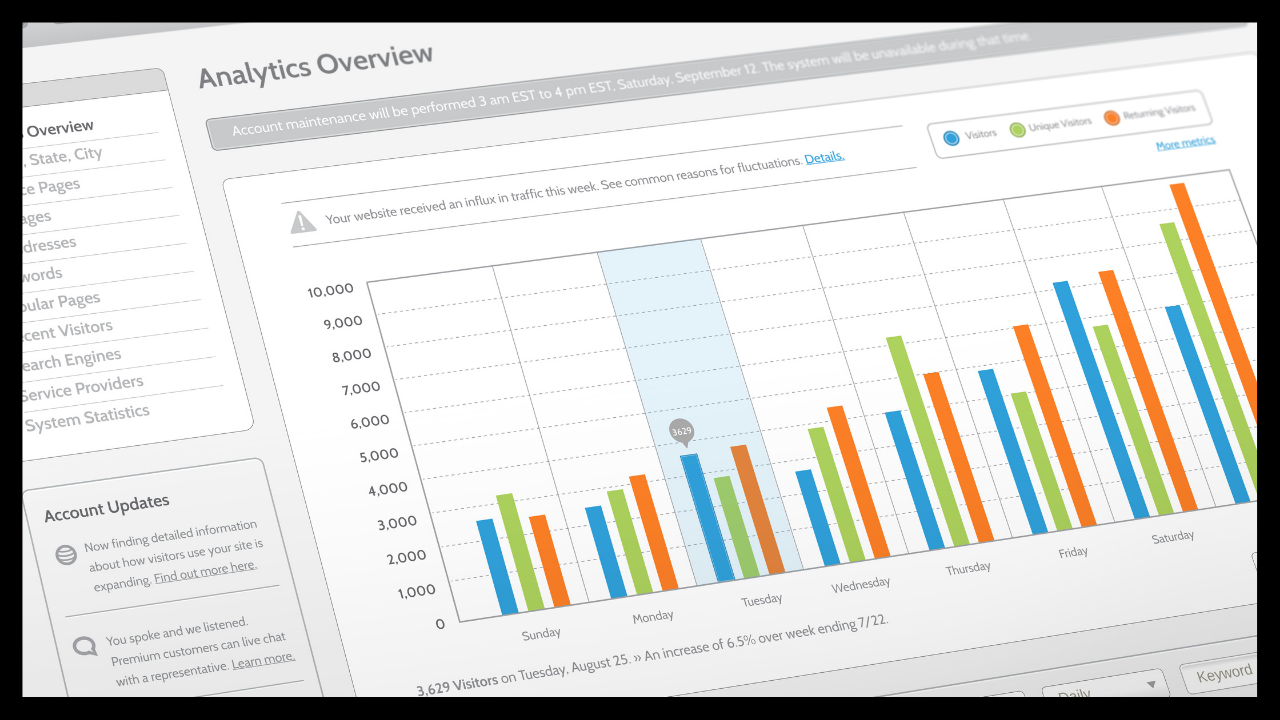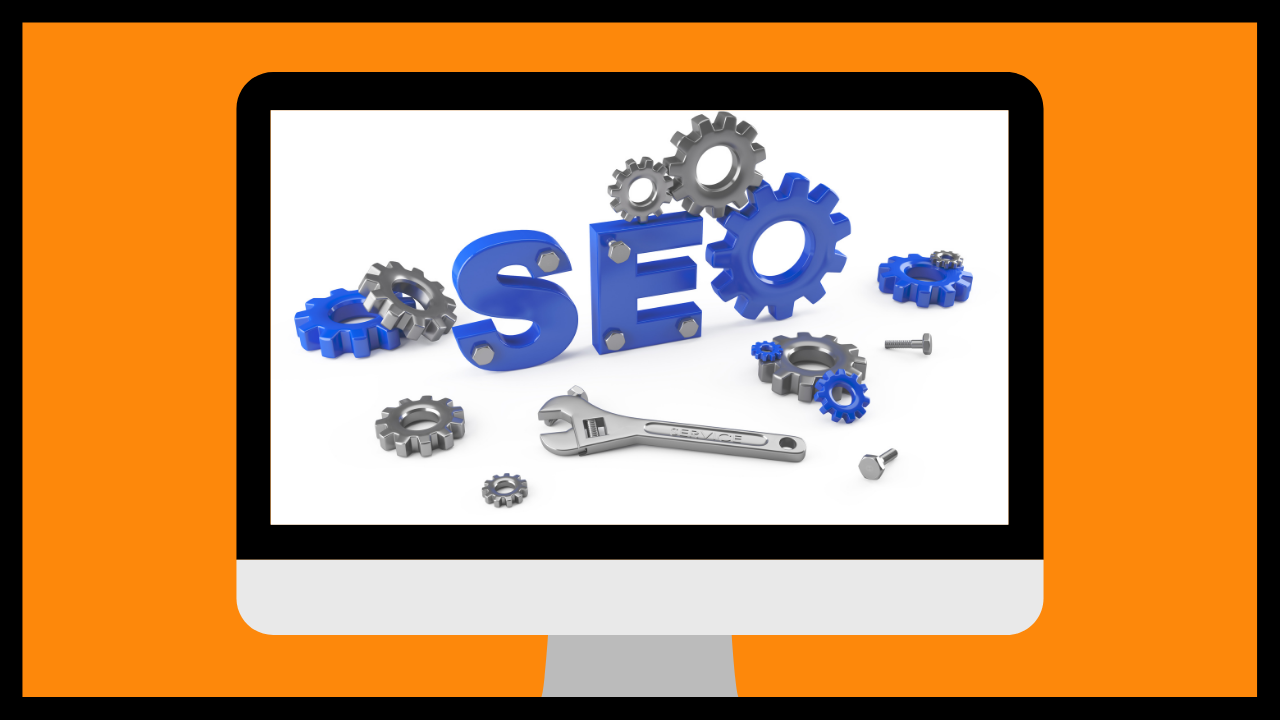|
You've just opened a new e-commerce store. Congratulations! You're excited to start making sales and shipping products all over the world. But you quickly realize that you're going to need some help getting your store in front of the right people. You do a quick Google search for "SEO for e-commerce websites" and find a whole world of information - and confusion. One of the biggest challenges e-commerce businesses face is not having a solid SEO strategy in place. Without SEO, your website will likely get lost in the shuffle of the millions of other websites on the internet. And even if you do have a good SEO strategy, it's always important to stay ahead of the competition by constantly tweaking and updating your plan. You're probably feeling confused and like the odds are stacked against you. You've got so many people telling you that your new e-commerce store is doomed to fail, and it's hard not to believe them. What is SEO? Do you need to be doing it? What are the best practices? And how do you even get started? Don't worry, we're here to help and give you some advice on how to do SEO for an e-commerce website and grow a successful business. In this comprehensive guide on how to do SEO for e-commerce websites, we'll answer all of your questions and give you the information you need to get started. 1. What is SEO and Why Do E-commerce Websites Need ItSEO, or search engine optimization, is the process of improving the ranking of a website on Google and other search engines. SEO is important for e-commerce websites because it helps them get in front of the right people - those who are looking to buy products online. Without SEO, your website will likely get lost in the shuffle of the millions of other websites on the internet. What is SEO? SEO is a short form for “Search engine optimization”. It is a long-term marketing strategy employed to improve a website's visibility and organic search results in google and other global search engines. Ecommerce SEO is the practice of optimizing an online store to rank higher in search engine results pages, and thereby increase its organic traffic. Why is SEO important for e-commerce? SEO is important for e-commerce for several reasons. Firstly, it is a long-term marketing strategy, which means that once you have put in the work, it will continue to benefit your e-commerce store for years to come. Secondly, it is an effective way to drive organic traffic to your website – that is, traffic that is not being paid for through advertising. This is important because it is generally considered to be higher quality traffic, which is more likely to convert into sales. Finally, SEO can be a very cost-effective way to market your e-commerce business, as you only need to invest time and resources upfront, rather than continuing to pay for advertising indefinitely. How SEO can help your e-commerce business There are many ways in which SEO can help your e-commerce business. Firstly, it can improve your visibility on search engine results pages, which will make it more likely that potential customers will find your website. Secondly, it can help to improve the click-through rate (CTR) from search engine results pages to your website, as well as the overall conversion rate of your website. Finally, SEO can help to improve the quality and quantity of traffic to your website, which will lead to more sales and increased revenue. 2. On-Page Optimization for E-commerce Websites On-page optimization is one of the most important aspects of SEO for e-commerce websites. This is because on-page optimization is the process of optimizing your website’s content and structure to rank higher in search engine results pages. It is essential to do this well, as it will help you to rank higher for the keywords that are most important to your business. There are several factors that you need to take into account when optimizing your website for SEO. These include: Choose the right keywords When choosing keywords, you need to make sure that they are relevant to your products and services, and that they have a high search volume. You can use a tool like Google Adwords Keyword Planner to help you with this. Use keywords throughout your website Once you have chosen your keywords, you need to make sure that they are used throughout your website, including in the title, meta tags, headings, and body of text. Optimize your images All of the images on your website should be optimized for SEO, with relevant keywords in the file name and ALT text. Create high-quality content To rank higher in search engine results pages, you need to create high-quality, keyword-rich content that is relevant to your products and services. This could include blog posts, product descriptions, and tutorials. 3. Off-Page Optimization for E-commerce Websites Off-page optimization is the process of improving a website’s visibility and ranking in search engine results pages through external methods, such as link building and social media marketing. It is an important part of SEO for e-commerce websites, as it can help to improve their ranking for important keywords. There are many different methods that you can use for off-page optimization. These include: Link building One of the most effective methods of off-page optimization is link building. This is the process of getting other websites to link to your website. You can do this by creating high-quality content that other websites will want to link to, or by reaching out to other website owners and asking them to link to your website. Social media marketing Another effective method of off-page optimization is social media marketing. This involves using social media platforms, such as Facebook, Twitter, and Instagram, to promote your website and its products and services. You can do this by creating engaging content that links back to your website, or by running social media ads. This will help to increase your visibility and drive traffic to your website. 4. Measuring the Results of Your SEO Efforts One of the most important aspects of SEO is measuring its results. This is necessary to determine whether or not your SEO efforts are effective and to identify areas that need improvement. There are several different ways that you can measure the results of your SEO efforts, including: Search engine rankings One of the most common ways to measure the results of your SEO efforts is by monitoring your website’s search engine rankings. You can do this using a tool like Google Search Console. Website traffic Another way to measure the results of your SEO efforts is by monitoring the traffic to your website. This can be done using a tool like Google Analytics. Conversions Another important metric to track is conversions. This is the number of visitors to your website who take the desired action, such as making a purchase or subscribing to your newsletter. You can track conversions using a tool like Google Analytics. 5. Tips To Stay Ahead of the Competition The online landscape is constantly changing, and it can be difficult to stay ahead of the competition. However, with a solid SEO strategy in place, you can stay ahead of the competition and continue to rank higher in search engine results pages. Here are some tips to help you stay ahead of the competition: Keep your website up-to-date One of the best ways to stay ahead of the competition is to keep your website up-to-date. This includes regularly adding new content, updating old content, and ensuring that all of your website’s components are up-to-date and working properly. Monitor your competitors Another way to stay ahead of the competition is to monitor their SEO efforts. You can do this using a tool like Google Analytics. This will help you to see what keywords they are targeting and what strategies they are using. 6. Tools and Resources to Help you with SEO for your E-Commerce Website If you're in the e-commerce business, you know the importance of a solid SEO strategy to rank higher on Google's search results page. To create an effective SEO strategy for your e-commerce website, it's important to have the right tools and resources at your disposal. Here are some of the most important tools and resources to help you with SEO for your e-commerce website: Keyword research tools Tools like SEMrush Keyword Magic Tool and Google AdWords Keyword Planner can help you to identify the right keywords to target for your e-commerce website. Link-building tools Tools like SEMrush Backlink Analytics and Moz Link Explorer can help you to identify opportunities for link building and track the progress of your link-building efforts. Monitoring tools Tools like Google Search Console and Google Analytics can help you to monitor your website's SEO performance and traffic. SEO news and resources It's also important to stay up-to-date with the latest SEO news and developments. Resources like Search Engine Journal, Moz Blog, and Search Engine Land can help you to stay informed about the latest SEO news and trends. Hiring an SEO expert If you don't have the time or expertise to implement an effective SEO strategy for your e-commerce website, you may want to consider hiring an SEO expert. An SEO agency can help you to identify the right keywords to target, optimize your website for search engines, and measure the results of your SEO efforts. Conclusion While many SEO tools can help you with your e-commerce website, it's important to have the right resources and expertise at your disposal. From keyword research to link building and monitoring, an effective SEO strategy for your e-commerce website may include a variety of different steps. To stay ahead of the competition, monitor search engine rankings or traffic, and conversions. You can also use tools like Google Analytics to monitor your website's SEO performance. Finally, consider hiring an SEO expert to help you with your e-commerce website if you don't have the time or expertise to implement an effective SEO strategy on your own. FAQ How do I start SEO for my eCommerce website?
The first step is to make sure your website is optimized for search engines. This includes making sure your site is mobile-friendly, has keyword-rich titles and descriptions, and links to other relevant websites. You can also use Google AdWords to get your website listed in the Sponsored Results section at the top of the search results page. How do I measure the success of my eCommerce SEO strategy? There are a few key metrics you can use to measure the success of your eCommerce SEO strategy. These include organic traffic, conversion rate, and average order value. You can track these metrics using Google Analytics or another web analytics tool. What are some common eCommerce SEO mistakes? Some common eCommerce SEO mistakes include not optimizing for mobile, not using keyword-rich titles and descriptions, and not linking to other relevant websites. How can I stay ahead of the competition? There are a few things you can do to stay ahead of the competition. First, make sure your website is optimized for search engines. Second, use Google AdWords to get your website listed in the Sponsored Results section at the top of the search results page. Finally, keep an eye on your competitors' websites and see what they're doing to improve their SEO. How can I make my eCommerce website more visible on Google? There are several methods you can employ to ensure your eCommerce website has better visibility on Google. These include using the correct keyword density, making sure your site is mobile-friendly, having keyword-rich titles and descriptions as well as linking to relevant websites. You can also use Google AdWords to get your website listed at the top of the search results page.
Comments
|
AuthorAllyn, Archives |
Copyright (c) 2021-2025 Digital Glo Consulting LLC
UEI: HZMLZPCJ8688 Cage Code: 9XLN2
All rights reserved.
Privacy Policy Terms and Conditions
UEI: HZMLZPCJ8688 Cage Code: 9XLN2
All rights reserved.
Privacy Policy Terms and Conditions






